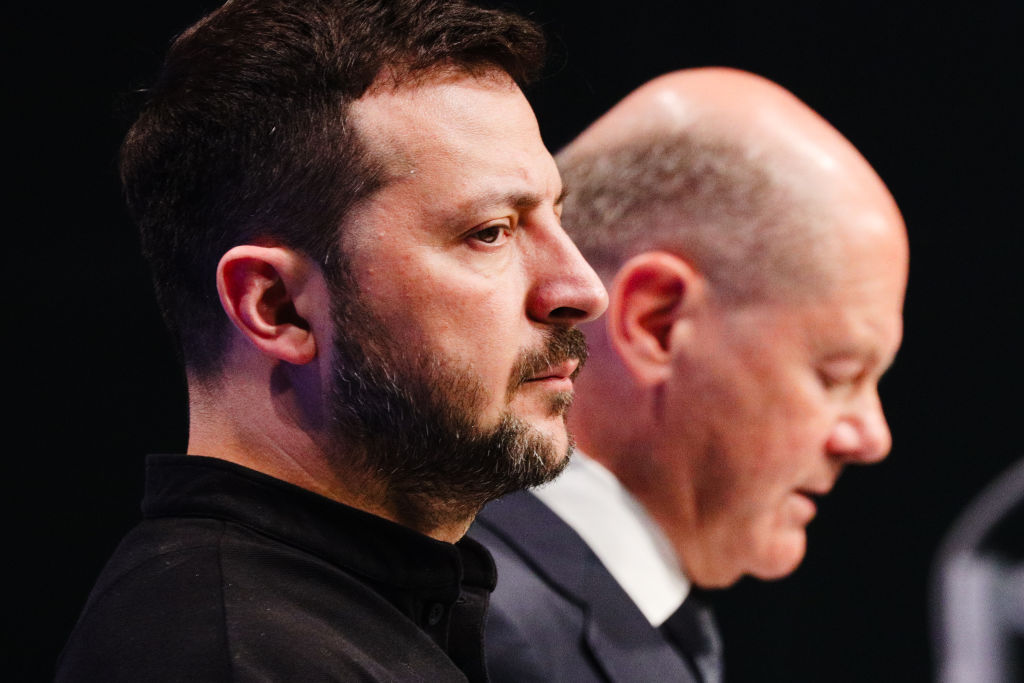In every conflict, there comes the “guns or butter” question: the tradeoff between spending on civilian goods and social programmes or on national defence. For a while, governments can do both and kick the can down the road, but at some point reality will set in. This moment apparently has now come in Germany, with Berlin announcing that it will cut its military aid to Ukraine by 50% in 2025.
Instead of the 2024 amount of €8 billion, the Scholz government will only be providing around €4 billion next year. That a major supporter of Ukraine is halving its support only months after China and Russia declared their “no limits” partnership shows that the level of resolve on one side of the conflict is wavering.
Unfortunately for Volodymyr Zelensky, almost every poll on German public opinion is moving in the wrong direction. There are, for example, two that show that a majority of Germans are opposed to supplying heavy weapons and long-range missiles that could strike into Russian territory. And given that only about 50% of Green and FDP voters — the two most pro-Ukraine parties — approve of heavy arms deliveries, support for assisting the Ukrainian war effort is clearly waning. Meanwhile, the most ardent critics — with a rejection rate of 90% — are members of the Right-wing Alternative for Germany (AfD) and the Left-wing Alliance Sahra Wagenknecht (BSW), both of which are continuing to rise in the polls.
It is not only a potential Donald Trump presidency, with the isolationist J.D. Vance confirmed as his running mate, that would raise questions over continued Western support for Ukraine. In fact, there are further signs of an attitude shift across the continent. Remember the ambitious plans to entirely wean Europe off Russian gas? Well, some have decided to change course. Greece, for example, has put plans for further LNG terminals on ice and increased supply of Russian pipeline gas via Turkey. In Austria, the Russian share in gas supply increased from 87% in 2023 to 91% (so far) in 2024, and Hungary signed renewed contracts with Gazprom as recently as 2023.
Whatever headlines one reads in the news, there seems to be an emerging trend of countries preparing for a gradual re-normalisation of relations with Russia. If one adds the recent self-declared and, by some, strongly criticised “peace mission” of Hungarian Prime Minister Viktor Orbán, the tectonic plates are shifting.
To be clear, this shift will not be unanimous, and will most likely lead to further divisions both within Nato and the EU. The Baltic states and Poland remain committed to supporting Ukraine, as does the EU’s incoming foreign policy chief and former prime minister of Estonia Kaja Kallas. It is unlikely, however, that Brussels can do much to stop these changes in attitude, especially given the political troubles in France. President Emmanuel Macron, who himself has been a strong pro-Ukrainian voice, must deal with a new National Assembly in which more Moscow-friendly parties now hold a majority.
These signs will worry Zelensky, and the situation is unlikely to change anytime soon. If Germany is a bellwether, 2025 could become a very difficult year for Kyiv.











Join the discussion
Join like minded readers that support our journalism by becoming a paid subscriber
To join the discussion in the comments, become a paid subscriber.
Join like minded readers that support our journalism, read unlimited articles and enjoy other subscriber-only benefits.
Subscribe